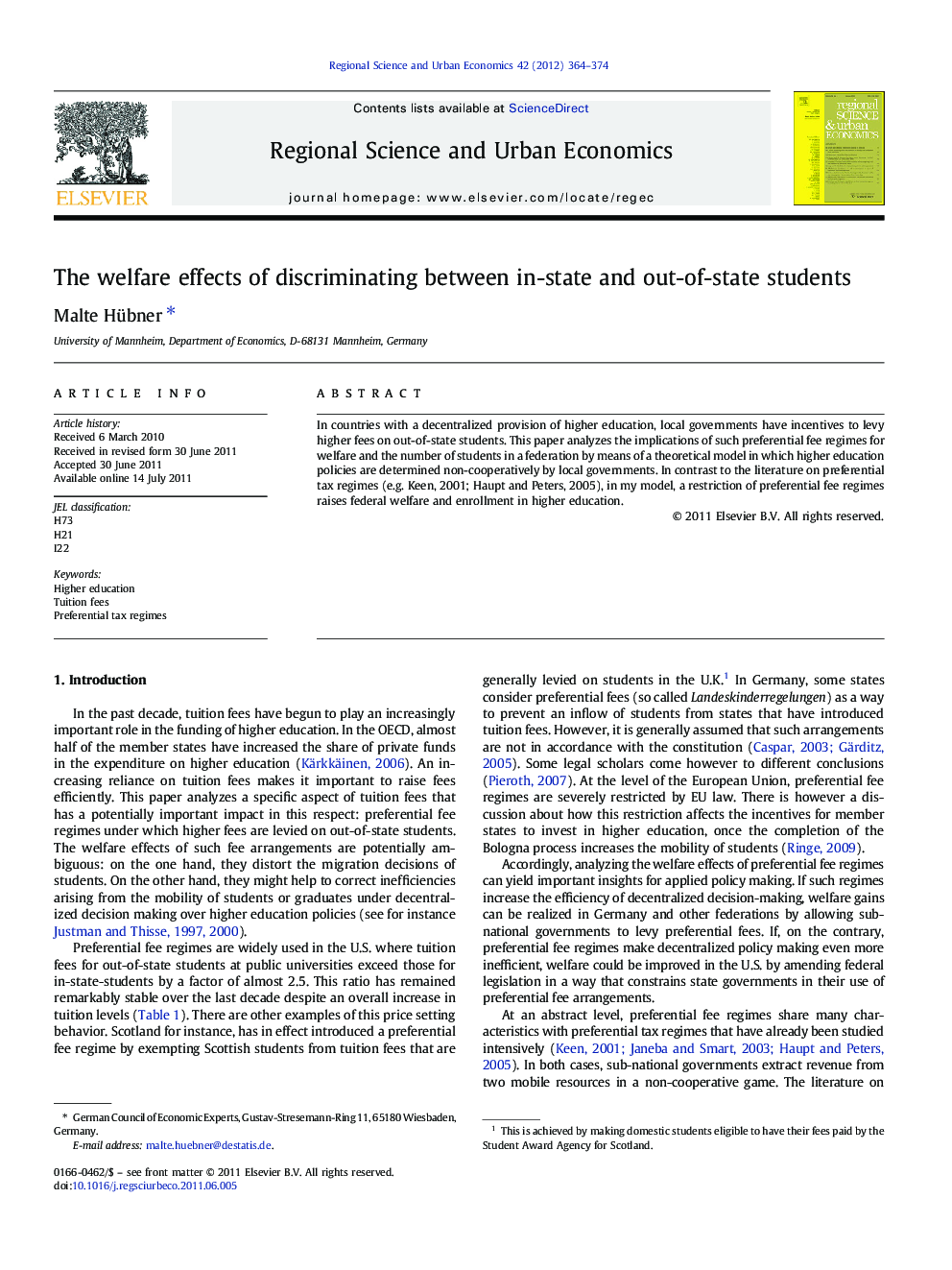| Article ID | Journal | Published Year | Pages | File Type |
|---|---|---|---|---|
| 981127 | Regional Science and Urban Economics | 2012 | 11 Pages |
In countries with a decentralized provision of higher education, local governments have incentives to levy higher fees on out-of-state students. This paper analyzes the implications of such preferential fee regimes for welfare and the number of students in a federation by means of a theoretical model in which higher education policies are determined non-cooperatively by local governments. In contrast to the literature on preferential tax regimes (e.g. Keen, 2001; Haupt and Peters, 2005), in my model, a restriction of preferential fee regimes raises federal welfare and enrollment in higher education.
► I develop a model of a decentralized provision of higher education in a federation. ► First paper in this literature that endogenizes number of students. ► Preferential fee regimes distort student's migration decisions. ► Preferential fees regimes therefore worsen equilibrium policy choice. ► Restricting preferential fees might increase welfare and enrolment rates.
